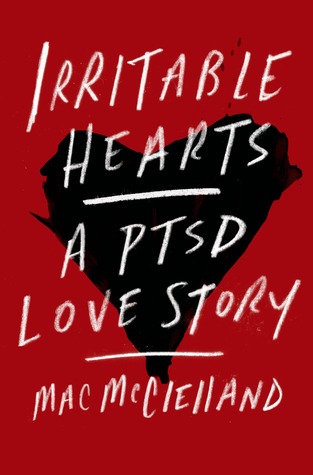Irritable Hearts begins in 2010, with McClelland traveling to Haiti after spending four months in New Orleans covering the Deepwater Horizon oil spill. Upon her arrival in Port-au-Prince, two life-altering events occur. While swimming in the hotel pool, McClelland meets and falls for Nico, a French military policeman who will eventually become her husband. The next morning, she goes out to do some reporting. As she leaves the hospital with her guide, they suddenly witness something that she never fully describes in the book, but that she detailed in 2011:
I spent my first day out accompanying a rape victim we’ll call Sybille to the hospital. The way her five attackers had maimed her in addition to sexually violating her was unspeakable. The way the surgeon who was going to try to reconstruct the damage yelled at her, telling her she’d got what was coming to her because she was a slut, was unconscionable. And the way Sybille went into a full paroxysm when we were on the way back to the post-quake tarp city she lived in was the worst thing I ever saw in my life. We were sitting in traffic and saw one of her rapists, and she started just SCREEEAMING a few inches away from my face, her eyes wide and rolling in abject terror.
The experience triggers severe PTSD, something from which, McClelland acknowledges, she may never fully recover.
Five years later, McClelland tells me that it wasn’t easy to write with such rawness about her past, something that may surprise anyone who has read her 2011 Good magazine essay, “I’m Gonna Need You to Fight Me On This: How Violent Sex Helped Ease My PTSD,” where she details the incident above and addresses the violent sexual fantasies that became a compulsive aspect of her life. In fact, her original book proposal was not a memoir. The book was to be about trauma and the people she’d met over the past few years; the author would take a backseat to the story rather than serve as the main character. But according to her agent, it just wasn’t compelling enough.
“I made the book about myself reluctantly,” McClelland says. “I’m not sorry I did it, but it did make it harder to write.” For one, the original essay had triggered strong reactions, both positive and negative. One critic accused her of being narcissistic; a New York Times article, because McClelland wrote of having sex with Nico, questioned whether she was a “reporter or a UN prostitute”; others accused her of being racist, self-glorifying, colonialist, and irresponsible.
During the writing process, she couldn’t help but worry about the reaction to Irritable Hearts.
“At least once a week, I would stop and say, ‘What am I doing? How can I possibly say these things to the world?’ I mean, you and I are strangers, and you know how crazy I am now. You put all of your vulnerabilities out there, and you can’t take them back. I’m not going to pretend that I’m a hard-ass. It’s terrifying.”
But, still, there were all of the positive reactions, and the desire to tell a gut-wrenching story of the real and unacknowledged effects of PTSD — on loved ones, on the person in its grip, and on larger society. And then there were the emails sent to McClelland, stories from people who had been traumatized and who were currently living with PTSD. She also began coming up against something called the “trauma hierarchy,” the way that one person’s suffering is always seen as worse than your own.
“We’ve been socialized to think our suffering is not that bad,” she says. “Our culture says that trauma is not that big of a deal, that people don’t deserve to be traumatized, so they should just suck it up. Like you don’t have a right to own that suffering.”
Some of the book’s most harrowing moments come when McClelland reports on veterans — of Vietnam, Afghanistan, and Iraq — who return from warzones to a “clinical and cultural amnesia” around their suffering.
“If you say, ‘I was really traumatized,’ you feel like people are looking at you and saying, like, ‘that’s so sad and I don’t want to see your pain,'” adds McClelland.
Irritable Hearts raises more questions than answers, which is unsurprising given the complicated and pervasive nature of PTSD. For herself, McClelland is back on the job as a freelancer, writing features for publications like Matter and Rolling Stone, working 40 hours a week, and happily married to Nico. But it’s not exactly a Disney ending.
“In my opinion, I’m going really well,” she says, before acknowledging that anyone who entered her emotional life right now might feel overwhelmed. “I definitely build in a lot more self-care than I did before. There’s not a week that goes by that I’m not experiencing and treating symptoms, but I have accepted them as part of life. I am managing them well.”



